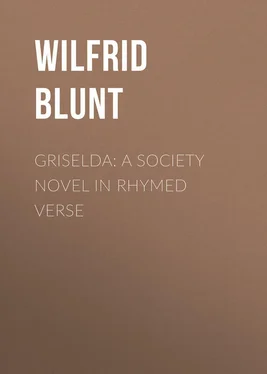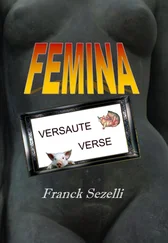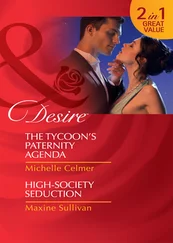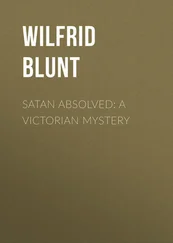Wilfrid Blunt - Griselda - a society novel in rhymed verse
Здесь есть возможность читать онлайн «Wilfrid Blunt - Griselda - a society novel in rhymed verse» — ознакомительный отрывок электронной книги совершенно бесплатно, а после прочтения отрывка купить полную версию. В некоторых случаях можно слушать аудио, скачать через торрент в формате fb2 и присутствует краткое содержание. Жанр: foreign_antique, foreign_prose, foreign_poetry, на английском языке. Описание произведения, (предисловие) а так же отзывы посетителей доступны на портале библиотеки ЛибКат.
- Название:Griselda: a society novel in rhymed verse
- Автор:
- Жанр:
- Год:неизвестен
- ISBN:нет данных
- Рейтинг книги:5 / 5. Голосов: 1
-
Избранное:Добавить в избранное
- Отзывы:
-
Ваша оценка:
- 100
- 1
- 2
- 3
- 4
- 5
Griselda: a society novel in rhymed verse: краткое содержание, описание и аннотация
Предлагаем к чтению аннотацию, описание, краткое содержание или предисловие (зависит от того, что написал сам автор книги «Griselda: a society novel in rhymed verse»). Если вы не нашли необходимую информацию о книге — напишите в комментариях, мы постараемся отыскать её.
Griselda: a society novel in rhymed verse — читать онлайн ознакомительный отрывок
Ниже представлен текст книги, разбитый по страницам. Система сохранения места последней прочитанной страницы, позволяет с удобством читать онлайн бесплатно книгу «Griselda: a society novel in rhymed verse», без необходимости каждый раз заново искать на чём Вы остановились. Поставьте закладку, и сможете в любой момент перейти на страницу, на которой закончили чтение.
Интервал:
Закладка:
"I cannot sleep to-night," went on the voice,
"The streets disturb me strangely with their noise,
The cabs, the striking clocks." Lord L.'s distress
Struggled with sleep. He thought he answered "Yes."
"What can I do to make me sleep? I am ill,
Unnerv'd to-night. This house is like a well.
Do I disturb you here, and shall I go?"
Lord L. was moved. He thought he answered "No."
"If you would speak, perhaps my tears would stop.
Speak! only speak!"
Lord L. here felt a drop
Upon his hand. She had put down the light,
And sat upon his bed forlornly white
And pale and trembling. Her dark hair unbound
Lay on her knees. Her lips moved, but their sound
Came strangely to his ears and half-unheard.
He only could remember the last word:
"I am unhappy – listen L.! – alone."
She touched his shoulder and he gave a groan.
"This is too much. You do not hear me. See,
I cannot stop these tears. Too much!"
And he
Now well awake, looked round him. He could catch
A gleam of light just vanished, and the latch
Seemed hardly silent. This was all he knew.
He sat some moments doubting what to do,
Rose, went out, shivered, hearing nothing, crept
Back to his pillow, where the vision wept
Or seemed to weep awhile ago, and then
With some disquiet went to sleep again.
Next morning, thinking of his dream, Lord L.
Went down to breakfast in intent to tell
The story of his vision. But he met
With little sympathy. His wife was late,
And in a hurry for her school of art.
His lordship needed time to make a start
On any topic, and no time she gave.
Griselda had appointments she must save,
And could not stop to hear of rhyme or reason —
The dream must wait a more convenient season.
And so it was not told.
Alas, alas!
Who shall foretell what wars shall come to pass,
What woes be wrought, what fates accomplishèd,
What new dreams dreamt, what new tears vainly shed,
What doubts, what anguish, what remorse, what fears
Begotten in the womb of what new years! —
And all because of this, that poor Lord L.
Was slow of speech, or that he slept too well!
CHAPTER II
Thus then it was. Griselda's childhood ends
With this untoward night; and what portends
May only now be guessed by those who read
Signs on the earth and wonders overhead.
I dare not prophesy.
What next appears
In the vain record of Griselda's years
Is hardly yet a token, for her life
Showed little outward sign of change or strife,
Though she was changed and though perhaps at war.
Her face still shone untroubled as a star
In the world's firmament, and still she moved,
A creature to be wondered at and loved.
Her zeal, her wit, her talents, her good sense
Were all unchanged, though each seemed more intense
And lit up with new passion and inspired
To active purpose, valiant and untired.
She faced the world, talked much and well, made friends,
Promoted divers schemes for divers ends,
Artistic, social, philanthropical:
She had a store of zeal for each and all.
She pensioned poets, nobly took in hand
An emigration plan to Newfoundland,
Which ended in disaster and a ball.
She visited St. George's hospital,
The Home for Fallen Women, founded schools
Of music taught on transcendental rules.
L. House was dull though splendid. She had schemes
Of a vast London palace on the Thames,
Which should combine all orders new and old
Of architectural taste a house could hold,
And educate the masses. Then one day,
She fairly wearied and her soul gave way.
Again she sought Lord L., but not to ask
This time his counsel in the thankless task
She could no more make good, the task of living.
He was too mere a stranger to her grieving,
Her needs, her weakness. All her woman's heart
Was in rebellion at the idle part
He played in her sad life, and needed not
Mere pity for a pain to madness wrought.
She did not ask his sympathy. She said
Only that she was weary as the dead,
And needed change of air, and life, and scene:
She wished to go where all the world had been —
To Paris, Florence, Rome. She could not die
And not have seen the Alps and Italy.
Lord L. had tried all Europe, and knew best
Where she could flee her troubles and find rest.
Such was her will. Lord L., without more goad,
Prepared for travel – and they went abroad.
I will not follow here from day to day
Griselda's steps. Suffice it if I say
She found her wished-for Paris wearisome,
Another London and without her home,
And so went on, as still the fashion was,
Some years ago, e'er Pulman cars with gas
And quick night flittings had submerged mankind
In one mad dream of luggage left behind,
By the Rhone boat to Provence. This to her
Seemed a delicious land, strange, barren, fair,
An old-world wilderness of greys and browns,
Rocks, olive-gardens, grim dismantled towns,
Deep-streeted, desolate, yet dear to see,
Smelling of oil and of the Papacy.
Griselda first gave reins to her romance
In this forgotten corner of old France,
Feeding her soul on that ethereal food,
The manna of days spent in solitude.
Lord L. was silent. She, as far away
Saw other worlds which were not of to-day,
With cardinals, popes, Petrarch and the Muse.
She stopped to weep with Laura at Vaucluse,
Where waiting in the Mistral poor Lord L.,
Who did not weep, sat, slept and caught a chill;
This sent them southwards on through Christendom,
To Genoa, Florence, and at last to Rome,
Where they remained the winter.
Change had wrought
A cure already in Griselda's thought,
Or half a cure. The world in truth is wide,
If we but pace it out from side to side,
And our worst miseries thus the smaller come.
Griselda was ashamed to grieve in Rome,
Among the buried griefs of centuries,
Her own sweet soul's too pitiful disease.
She found amid that dust of human hopes
An incantation for all horoscopes,
A better patience in that wreck of Time:
Her secret woes seemed chastened and sublime
There in the amphitheatre of woe.
She suffered with the martyrs. These would know,
Who offered their chaste lives and virgin blood,
How mortal frailty best might be subdued.
She saw the incense of her sorrow rise
With theirs as an accepted sacrifice
Before the face of the Eternal God
Of that Eternal City, and she trod
The very stones which seemed their griefs to sound
Beneath her steps, as consecrated ground.
In face of such a suffering hers must be
A drop, a tear in the unbounded sea
Which girds our lives. Rome was the home of grief,
Where all might bring their pain and find relief,
The temple of all sorrows: surely yet,
Sorrow's self here seemed swallowed up in it.
'Twas thus she comforted her soul. And then,
She had found a friend, a phœnix among men,
Which made it easier to compound with life,
Easier to be a woman and a wife.
This was Prince Belgirate. He of all
The noble band to whose high fortune fall
The name and title proudest upon earth
While pride shall live by privilege of birth,
The name of Roman, shone conspicuous
The head and front of his illustrious house,
Which had produced two pontiffs and a saint
Before the world had heard of Charles le Quint;
A most accomplished nobleman in truth,
And wise beyond the manner of his youth,
With wit and art and learning, and that sense
Of policy which still is most intense
Among the fertile brains of Italy,
A craft inherited from days gone by.
As scholar he was known the pupil apt
Of Mezzofanti, in whose learning lapped
And prized and tutored as a wondrous child,
He had sucked the milk of knowledge undefiled
While yet a boy, and brilliantly anon
Had pushed his reputation thus begun
Through half a score of tongues. In art his place
Was as chief patron of the rising race,
Which dreamed new conquests on the glorious womb
Of ancient beauty laid asleep in Rome.
The glories of the past he fain would see
Wrought to new life in this new century,
By that continuous instinct of her sons,
Which had survived Goths, Vandals, Lombards, Huns,
To burst upon a wondering world again
With full effulgence in the Julian reign.
Интервал:
Закладка:
Похожие книги на «Griselda: a society novel in rhymed verse»
Представляем Вашему вниманию похожие книги на «Griselda: a society novel in rhymed verse» списком для выбора. Мы отобрали схожую по названию и смыслу литературу в надежде предоставить читателям больше вариантов отыскать новые, интересные, ещё непрочитанные произведения.
Обсуждение, отзывы о книге «Griselda: a society novel in rhymed verse» и просто собственные мнения читателей. Оставьте ваши комментарии, напишите, что Вы думаете о произведении, его смысле или главных героях. Укажите что конкретно понравилось, а что нет, и почему Вы так считаете.












